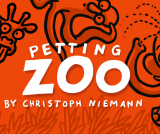
Dwayne Spradlin is at the helm of Innocentive.com, a website that brings the crowdsourcing and inventiveness of Web 2.0 together in an exciting synergy that serves both corporate and philanthropic clients. As the New York Times says: “If you have a problem, use Innocentive to ask everyone.”
During his talk, Spradlin announced the ACT Innovation Prize Challenge Series. Driven by Interactive Africa’s new African Carbon Trust, this innovation prize is aimed at generating disruptive innovation across all disciplines of design in order to accelerate low carbon innovation. The idea is to create a low carbon or clean energy innovation that solves low-income household energisation.
Here he responds to the Design Indaba audience questions:
1. Is Innocentive only about individual solutions competing? What about online collaboration?
About 10% of our solvers are in fact groups collaborating today, including individuals working together as teams, academic institutions and Contract Research Organisations (CROs).
2. Who owns the rights to the technology or the design IP after the solution has been commercialised?
It depends on the type of challenge we run for the Seeker, but generally the Intellectual Property is transferred to the Seeker along with any residual rights at the time the award is paid.
3. What was the South African winners solution?
The South African Solver that I mentioned won $12 000 for a challenge called "Time Dependent Model for Chemical Compounds", with the following short description: "A rate model for the release of flavour compounds from polymeric materials/fibres is desired."
4. Who and how is a winner(s) determined? Surely not all solutions are independent?
The Seeker always makes the final decision based upon the success criteria established when the challenge launched. It is possible for solutions to be similar when submitted, however the levels of documentation and the rigour of the solution specifics may establish the clear winner. In addition, Seekers retain the rights and often pay out multiple awards in these kinds of cases.
ACT Innovation Prize Challenge Series
The current thinking within the South Africa context is not working when it comes to providing successful solutions to counter climate change. The type and scale of the solutions needed do not feature in our collective thinking. Interventions are difficult to apply because each emissions sector is part of a complex world system with a wide range of political, social, economic and environmental dynamics. We need as many minds as possible to work with unified focus and intent in order to affect any meaningful impact.
The ACT Innovation Prize Challenge Series will be the standard barer for innovation, collaboration and co-creation. The large-scale awareness created by the extensive marketing campaign will spotlight the type of thinking and collaboration needed in order to address the issues we have in climate change. It will focus on new energy sources and the cradle-to-cradle design principle of sustainability.
In order to solicit an effective, market-ready innovation, the prize will be staged in a series. Each prize stage will further refine the winning concept. This methodology is best practice for ensuring that an effective and excellent innovation is incentivised.
The Prize concept
The theoretical prize will be awarded to the best low carbon, clean and or renewable energy innovation that addresses low-income domestic energy poverty in South Africa.
As of yet, current markets do not support the efforts of designers and technologists working on issues of renewable and clean energisation. Awareness of the necessity of these innovations will assist in the uptake and the creation of markets for these products and services. Manufacturers, retailers, service providers and policy-makers all play a part in moving towards low-carbon, sustainable living.
With this prize, we will see a nation focussed on solving energy related issues, whether it’s Mr Hlubi with his dung-fuelled generator, or a Nobel Prize winner’s solar energy storage system. An international spotlight will be focussed on addressing sustainable energy in the South African context and the people who are making it happen.
Energy poverty is still a massive issue for many South Africans. Yet it remains one of the hardest areas to find clean and cheap solutions for. The concept behind incentivising such a prize is that the prize is not a poor man’s substitute and that it can be marketable to higher income groups.
The prize will be adjudicated by some of South Africa’s leading academic energy authorities and the criteria have been based on research and the advise from technicians and academics operating in the field of energy. Invitations to sponsor this prize are open to any interested parties wishing to own any of the prizes or the series as a whole.
For more info: www.africancarbontrust.org










